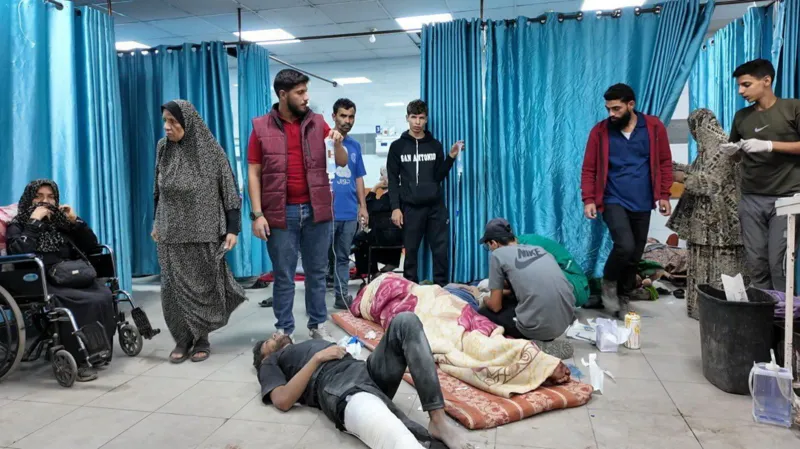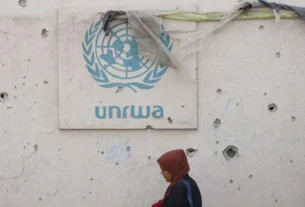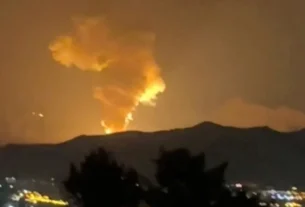The ongoing conflict in Gaza has reached a critical juncture, described by the UN’s High Commissioner for Human Rights, Volker Turk, as the “darkest moment” of the war. As hostilities escalate, particularly in northern Gaza, the humanitarian situation deteriorates alarmingly. Turk’s statements highlight a profound crisis, emphasizing the catastrophic human toll and the dire circumstances facing civilians caught in the crossfire.
The conflict, which erupted over a year ago, has resulted in an estimated 150,000 casualties, encompassing the dead, wounded, and missing. Turk warns that these numbers could rise significantly as Israel intensifies its military operations. He underscores the scale of the violence, calling attention to the breadth of the air and ground assaults aimed at eliminating Hamas’s presence in the north. The Israeli government justifies its actions by citing the need to prevent Hamas from regrouping, but the humanitarian consequences of this strategy are severe.
Turk’s remarks indicate a deep concern over Israel’s tactics in the region. He suggests that the ongoing military operations may constitute “atrocity crimes,” with the potential implications of extending to crimes against humanity. The systematic targeting of civilians, coupled with a blockade that limits access to essential supplies, creates an environment of desperation. He notes that as the Israeli military continues its operations, many civilians are being forced to relocate with nowhere safe to go. The lack of safe escape routes exacerbates the plight of the already vulnerable population.
In addition to the physical violence, Turk highlights the psychological toll the conflict has on civilians. The relentless bombing has led to widespread fear and trauma among those in northern Gaza. The situation is made worse by reports of armed groups operating within civilian areas, which complicates the dynamics of the conflict and puts innocent lives at further risk. Turk describes this as an unacceptable reality that endangers the lives of civilians, as they become pawns in the ongoing violence.
The humanitarian crisis is marked by a severe lack of access to aid. Turk points out that the northern part of Gaza has seen almost no humanitarian assistance in weeks. Hospitals, which are meant to be sanctuaries, are under attack, leading to casualties among both staff and patients. The conditions in medical facilities are dire, with shortages of essential supplies and an overwhelming number of casualties. The UN rights chief insists that under international law, Israel has an obligation to ensure the delivery of humanitarian aid to those in need, a responsibility that is being ignored amid the chaos.
As the conflict continues, Turk calls on world leaders to take action. He emphasizes that all states have a responsibility under the Geneva Conventions to uphold international humanitarian law. The dire humanitarian situation, he argues, necessitates immediate intervention and action from the international community to prevent further atrocities. He expresses frustration at the lack of decisive measures to halt the violence, stating that the ongoing devastation must end, and that urgent steps are needed to provide relief to those suffering in Gaza.
Moreover, Turk raises the alarm about the implications of the ongoing violence on global governance and international law. He warns that the principles of international rule of law are being systematically undermined, and that the world risks failing those in desperate need of help. He implores leaders to act with a sense of humanity, stressing the importance of collective responsibility in the face of such widespread suffering.
The situation in Gaza is not merely a local crisis but has broader implications for international stability. The ongoing conflict raises questions about the effectiveness of the international community in responding to humanitarian crises and enforcing adherence to international law. The international response to the Gaza conflict will be closely scrutinized, as failure to act decisively could set a troubling precedent for how similar situations are handled in the future.
In summary, the current state of the Gaza conflict, particularly in the north, represents a profound humanitarian crisis. The warnings from the UN about potential atrocity crimes highlight the urgent need for international action to alleviate the suffering of civilians caught in the conflict. The situation underscores the complexities of modern warfare, where military strategies often have devastating impacts on civilian populations. As the world watches, the call for unity and action becomes increasingly critical, demanding a reevaluation of how the international community engages with and responds to crises of this magnitude. Without urgent intervention, the prospect of a worsening humanitarian disaster looms large, leaving countless lives hanging in the balance.





